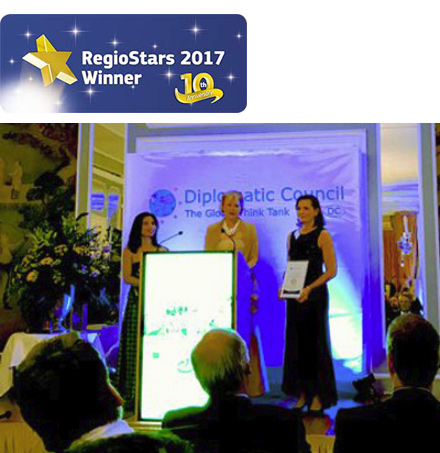The German cities of Dortmund, Duisburg and Arnsberg are the test beds for new remote assisted-living technologies that enable the elderly to live independently at home for as long as is possible, secure in the knowledge that medical care and other assistance are never too far away. The tests demonstrate how such a system can have a sustainable business model.
Smart technology tested in Germany allows older people to live independently
- 23 August 2017
This project helps us to convince communities, care services, health insurance companies, housing associations and senior citizens and their relatives that smart technology can be a big part of their solution.
Europe’s increasingly ageing population – and the services required for those who cannot fully care for themselves – are putting a lot of financial pressure on communities and healthcare services. Experts predict that the costs for cities of providing health services for the elderly will more than double by 2030. A shortage of nurses to care for the elderly is also hampering healthcare services.
Building more care homes for seniors is one solution, but costly. Another has been provided by the EU-funded Smart Service Power project, which has developed an Internet of Things (IoT) platform – mainly accessible via natural language assistance software – for use with internet-connected sensor technologies to help the elderly live independently at home for as long as possible.
The platform can remotely monitor a person’s condition in real time, predict any deterioration in their health, detect a medical emergency, and alert healthcare emergency services if help is needed. The technology assures users that medical help will be provided when they need it. The system can also predict when it might be better for a person to move into a senior care home.
The project team believes that the ‘smartification’ of a person’s home through internet-connected technologies has the potential to fill some of the gaps due to the shortage of nursing staff, support the desire of many elderly people to stay at home longer, alleviate relatives’ concerns about their parents’ care, and cut costs for municipalities and healthcare services.
Online medical monitoring
The platform integrates remote-assistance functions from the fields of e-health, smart home, ambient-assisted living (AAL), emergency call systems, nursing and concierge services. For example, it can receive information from a combination of internet-connected sensors that track a movement, body temperature, weight, and hydration levels.
Some examples include a special skin patch to monitor moisture levels through skin tension and transmit information to the platform. It can alert the participant or a health service if the person is not drinking enough water or is suffering from dehydration. A sensor on a weighing scale collects data and evaluates any abnormal change in a person’s weight – a sudden increase in weight indicates water retention which, in turn, may indicate a cardiac problem.
A connected drug dispenser allows the platform to measure out a person’s medication each day, and ensures they do not forget to take their drugs and take them at the right time. As people tend to forget to wear a tracker, the systems sensors the person via a ‘time of flight’ sensor in the ceiling which detects falls and monitors whether the person recovers quickly or needs emergency assistance.
Participants can also maintain their cognitive skills through the service, which provides interactive games to train the memory.
Innovating for real needs
One of the project’s major innovations is to automatically record all the data from the various Internet-connected sensors on a single platform, providing proactive support for participants and tracking their medical condition through ‘big data’ techniques and pattern analysis. Intelligent algorithms recognise emergencies in the home and can identify individual needs.
The system uses natural language, which is most intuitive way for interactive communication with users, who can also choose how providers can access their personal data.
The project has also developed innovative sensors monitor participants and predict whether they need preventative care. Business models sustainably fund the service. Innovative software and a new approach to the ethical use of personal data have been developed.
Some project members are planning to establish a public-private partnership to turn the research results into real services that can be marketed to municipalities, healthcare insurance providers, housing companies, their inhabitants and their relatives. The system was tested in Dortmund, Duisburg and Arnsberg as cities that represent the range of services needed across Europe for remote, monitored care of the elderly.
Total investment and EU funding
Total investment for the project “Smart Service Power” is EUR 2 808 606, with the EU’s European Regional Development Fund contributing EUR 1 404 303 through the “Nordrhein-Westfalen ERDF 2014-2020” Operational Programme for the 2014-2020 programming period.

